On light and dark in children’s literature
This is a conflicted post – unresolved and written from the heart. I really don’t know what I think – yet. I feel it is genuinely important – and not just intellectually. There’s an undercurrent of empathy with younger readers and what stories mean to them that runs deep.
In the winter months especially, I crave the dark and the macabre. I revel in ghost stories. I re-read shadowy treasure such as M. R. James and Joan Aiken’s spookier tales. I listen to haunting audio (Kate Mosse’s The Mistletoe Bride and Radio 4’s Edinburgh Haunts). I itch to review Frost Hollow Hall for my Wedding Ghost blog.
As far as I can recall, I’ve always loved the dark and frightening. One of my very earliest memories is of my lovely and much-missed Nanna chasing me up the stairs bear-fashion and me begging her to ‘growl me Nanna’. It’s a deep-rooted part of my psyche.
It was therefore a pleasure for me to go to London for an IBBY talk involving Sally Gardner, Chris Priestley, Susan Cooper and Geraldine McCaughrean. (There’s an account of it here with some of the wisdom the four writers kindly shared). En route, I read Tinder -Sally Gardner’s new and extraordinary book so that I could cover it for Serendipity Reviews.
I like my fairy stories unbowdlerised – and Tinder is certainly that. I don’t want them sanitised and sweetened. The same goes for many other stories – I thought the Hollywood-style ending of The Woman in Black film was a travesty. I can take a dark and tragic ending.
Yet the discussion on ‘happy endings’ left me stimulated but confused. On one hand, Chris Priestley definitely doesn’t feel the need for cheery resolution to a story – a tale doesn’t have to have a point, a function in his view. That resonates – cheap and easy ‘morals’ and ‘issues fiction’ strike me as patronising and likely to be favoured by the Mr Goves and Mr Gradgrinds of this world.
However, one of the things I dislike most is cynicism. I loathed the end of The Hunger Games trilogy – it seemed to say the world is a bleak mess controlled by vile people and there’s nothing you can do about it. My still-adolescent heart wants to change things and I think defeatist, miserablist attitudes allow greed and all manner of other nasties to triumph. (rant over)
So I rejoiced when Geraldine McCaughrean said ‘Catharsis is good for you’ – that she wanted stories that left children with ‘some kind of hope.’ As she said, ‘all their colours are acid-bright and their feelings burn with adrenaline’. I feel writers do have some sort of responsibility.
As a survivor of depression, I need hope. Happy-clappy, isn’t everything lovely endings don’t work for me – if anything it makes matters worse. But the utterly bleak fills me with despair too. I don’t think younger readers are so much different – or at least, not the ones I’m writing for.
So as I said, I have no definitive opinions on this one – I’m still fumbling around. At present the best I can see as my purpose is:
to comfort the disturbed
and disturb the comfortable
What are your thoughts? What place is there for hope, or unadulterated grim reality. Should we focus on the shadow or the star?


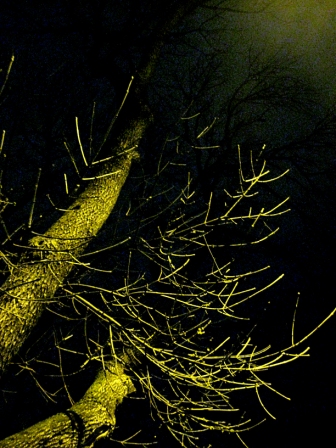
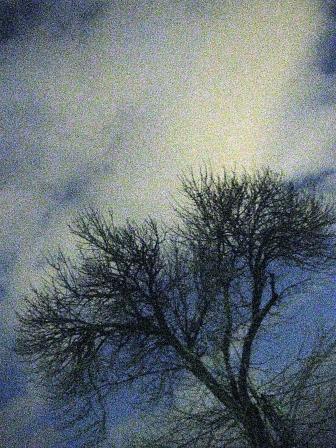
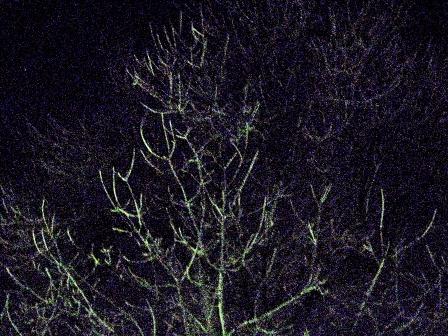

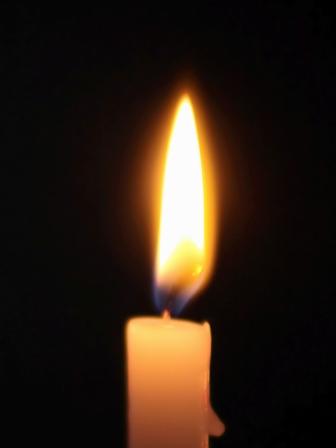
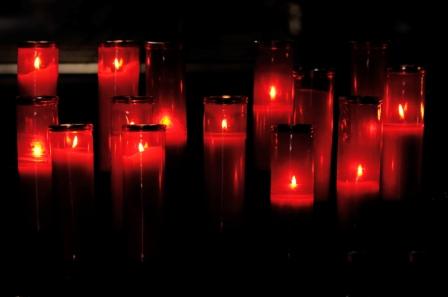
It’s a hard one, isn’t it? Personally, I like endings that give some hope, but don’t necessarily provide all the answers – they leave you to make up your own mind, and imagine the characters’ lives continuing after the story has ended. Like you say, happy-clappy endings feel too neat, and bleak endings are just depressing!
Thanks Emma. Certainly more open-ended resolutions don’t patronise readers – always a good thing.
I so agree with you that writers have a responsibility to their readers. I read the first book in The Hunger Games trilogy and knew I didn’t want to read any more. I didn’t quite trust the author – and your comment confirms that it was the right decision. I would have thought that giving readers hope – whether adults or children – is vital. What’s the point of fiction, if not to edify, to shine a light for readers to follow? That, I would argue, is what makes the Lord of the Rings so inspiring – it celebrates the triumph of hope over despair, perseverance over giving up, good over evil. In a hundred years, people will still be reading it, long after the Hunger Games has been forgotten
Thanks for the comment Margret. I appreciate your point about LOTR – and that is no easy, twee ending – there’s plenty of loss and change.
I have done some bleak endings and some not-so-bleak ones… As I get older I am preferring a bit of hope. But honest hope, or consolation, though having said that I think darkness can console, the way the blues can in music. Of course, the most realistic endings are unresolved, because that’s what life is. But I think it is nice t try and offer a smidgen of hope.
Oh I really like that ‘darkness can console’! Thank you for commenting, Matt.
Hmmm, I love an ending that makes you THINK, that surfaces you roughly out of your ordinary life, and makes the room around you seem all silent & still as you sit and stare at the last page, that alters something, makes you think about it for days (years!) to come.
I don’t find cathartic endings do that, although I do love a good weep at a well crafted redemptive end – there’s power in that too. But does it last?
For me it’s about what you’re trying to provoke in the reader. A question I often ask (myself/others) is ‘What makes a good book?’ For me it has to be about resonance rather than page turning (although obv should have both).
So does a happy end create resonance?
I like bittersweet.
Billy Elliot: he gets to be a ballet dancer but Thatcher still shafted the lot of us.
Full Monty: they get their applause and a few 100 quid but there’s still no jobs once the buzz dies down.
As a teen I was deeply affected by S E Hinton’s That Was Then This is Now (about drug experimentation). Its memory’s stayed with me 30 years and as a young teen it was my fav book. I got it out from the library archive last month and reread it. Pretty bleak.
I also got out the other book I remembered from my early teens – a love story where the guy has cancer and dies. It was hard to get through. Not due to the topic but because of the poor writing and dreadful cheesiness. But still, the ending… not happy. Bleak.
Does bleak resonate more than happy?
I’m trying to reconcile this in my own work. I want to speak hope but I want to speak truth.
So for me it’s bittersweet all the way.
Thanks for commenting Emma. yes of all the Booker 7 story types it’s the rebirth one that gets me every time emotionally – but my head goes for bittersweet quite often.
Lovely piece – and photographs. I have a more nuanced reading perhaps of TINDER, which is a circular narrative which ends on an ambiguous note – and also of HUNGER GAMES, which to me does not end on the note you suggest but with hope of rebirth and renewal of what is good. I share your dislike of unhappy endings however.
Thank you for dropping in , Amanda. I absolutely agree about Tinder having that possibility – but I didn’t want to give spoilers in my review. We shall have to agree to disagree about Hunger Games – but the point is well made.
I really appreciate you noticing the photographs – I spend a good deal of timing sourcing Creative Commons/similar images. Thanks for noticing.
Hey, K M Lockwood, was that The Dark is Rising Susan Cooper? I loved those books. They were scary dark. And the ending of that series was so bitter-sweet: Will defeated the evil but had to accept that he would never be an ordinary boy. And the most bitter-sweet moment for me was when he had to make his brother forget … ah the moths of forgetfulness. Anyway, enough of that. Here are my thoughts on endings . . . According to Aristotle, a whole [plot] has to have a beginning, a middle and an end. And the end has to be appropriate to everything that goes before it. So some endings just have to be happy and some just have to be sad. But some can go either way, and that’s the author’s choice. But the author also bears a responsibility towards the reader. After progressively darkening her narratives, I don’t think J K Rowling should have gone so far as to kill one of the Weasley twins. That was plain unnecessary. But then Andersen’s Little Match Girl just had to die, and the Happy Prince’s leaden heart had to break and the Elves had to leave for the Grey Havens because the Time of Men had come (sob) . . . and Lyra and Will could never be together because that would destroy the integrity of their separate worlds . . . I saw that performed at the National and cried my eyes out in public. But I loved it. Some things have to end ‘badly’ for a good reason not gratuitously. It all comes down to authorial intention. But, personally, if there’s a feeling that, beyond plot closure, something continues beyond the last page, then that makes the reading worthwhile . . . so no Blake 7 or The Perfect Storm endings for me, thank you. However, that’s not likely in the Julia Donaldson books I’m currently reading to my grandson, Leo. They all end perfectly, but then they’re aimed at infants. So when is it OK to introduce darkness and misery? Some of the old folk tales, geared towards frightening children into obedience, are dire. These days we protect children longer until fantasy/horror is not likely to be confused with reality. My son watched Stephen King’s It (Cert 18) when he was seven – and I wasn’t looking, and he said he was scarred for life, although it didn’t scare him as much as the Wheelers in Return to Oz (Cert PG). I used to be scared of robots as a kid, now Leo has them on his pyjamas. Who knows?
Hello Jean – yes it was THAT Susan Cooper. Did you know you can write to her and she will reply? See her website.
I value your comments – and the erudition sweetened with a little uncertainty.
Thanks!
Thanks for another thought provoking post Philippa. I’ve been pondering the happy endings question since sharing that Swiss Cottage evening with you. I went to Susan Cooper’s website to read about her growing up during WW2 – where she would spend nights in the air raid shelter her father dug at the bottom of their back garden, reading by the light of a candle. How precious that small pool of light seems to me, sitting with the dark all around, listening to the sounds of unknown and unnamed terrors happening in the world outside. How vital the wish for a happy ending, when so many around were having very bad endings.
I think we can’t have the light without the dark. It sounds corny to my lucky ears, but thinking of it in the context of war, that statement makes more sense to me. It’s the darkness that makes the light so vital. If we are ever going to be successful at telling that story, I believe we sometimes need to show the “things that can’t be fixed”, because when we do, they accentuate our feelings of hope for that precious happy ending – making it something to strive for.
Thanks again – looking forward to your next thought provoking post! 🙂
Oh thanks for sharing that image and that understanding, Julie. Strong and yet subtle – not corny at all because it is honest.
Pingback: Last post …of 2013 | K.M.Lockwood
It’s definitely stimulating to read content from other authors and learn something from their site.
Hello and welcome – I hope your writing group finds some use in my ideas.
Pingback: Lighting the Spark | Words & Pictures